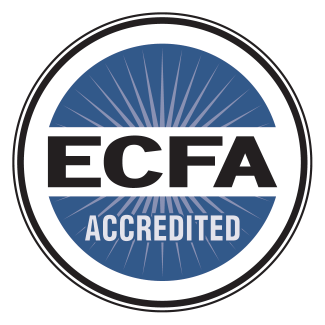Continuing Education Certificate in Elementary Education
Overview
The Continuing Education Certificate in Elementary Education is a program of study designed to provide the university graduate or career-interruption student the opportunity to obtain an initial teaching license from the state of Iowa or certification from ACSI. In addition to fulfilling the requirements for the certificate, teacher candidates seeking recommendation for an initial teaching license from the Iowa Board of Educational Examiners must complete all program completion and state licensure requirements.
- Complete a minimum of 86 total credit hours.
- A minimum of 60 credit hours must be earned from Emmaus.
- All credit hours in some professional core courses, in all methods courses, and in student teaching must be earned from Emmaus because licensure competencies are assessed in these courses.
- Achieve a 2.0 minimum grade point in most professional studies courses and a 3.0 minimum grade point in a few competency-based professional studies courses in the elementary education program.
- Achieve a 2.5 minimum cumulative grade point average.
- Complete the general graduation requirements listed in the Academic Life section of the catalog.
- Meet course requirements in the following areas:
- Bible/Theology Electives
- Servant Leader Training (CCS 120) 4 units
- Chapel (CCS 110)
- Educational Technology (CS 240)
- University Mathematics (MAT 140)
- Understanding the K-6 Math We Teach (MAT 221)
- Child Development (PSY 254)
- Introduction to Earth Science and Lab (SCI 230/231)
- Introduction to Human Biology and Lab (SCI 241/242)
- Introduction to Education (ED 106)
- Field Studies (ED 194)
- Children’s Literature (ED 203)
- Teaching Visual Arts (ED 207)
- Introduction to Exceptionalities (ED 231)
- Field Studies (ED 294)
- Field Studies (ED 295)
- Methods, Management, and Assessment of K-8 Reading (ED 301)
- Methods, Management, and Assessment of K-8 Language Arts (ED 305)
- Teaching Performing Arts (ED 307)
- Teaching Diverse Learners in K-12 Contexts (ED 311)
- Instructional Design and Differentiation in Elementary Schools (ED 330)
- Educational Psychology (ED 351)
- Teaching Physical Education/Wellness (ED 381)
- Methods, Management, and Assessment of K-6 Mathematics (ED 375)
- Field Studies (ED 394)
- Teaching Practicum 1 (ED 395)
- Methods, Management, and Assessment of K-6 Science (ED 428)
- Methods, Management, and Assessment of K-8 Social Studies & Content Area Literacy Strategies (ED 435)
- Diagnostic Teaching of Reading (ED 485)
- Teaching Practicum 2 (ED 495)
- Student Teaching (ED 497)
- Student Teaching Seminar (ED 499)
- Introduction to TESOL (ESL 210)
In addition to fulfilling the requirements for the continuing education certificate, teacher candidates must fulfill all program completion and licensure requirements (cf. the TEP program policies) to be recommended to the Iowa Board of Educational Examiners (BOEE) for teaching endorsements sought.
The teacher candidate will successfully demonstrate the requisite professional knowledge, skills, and dispositions in each of the following outcomes:
- Standard #1: Learner Development. The teacher understands how learners grow and develop, recognizing that patterns of learning and development vary individually within and across the cognitive, linguistic, social, emotional, and physical areas, and designs and implements developmentally appropriate and challenging learning experiences.
- Standard #2: Learning Differences. The teacher uses understanding of individual differences and diverse cultures and communities to ensure inclusive learning environments that enable each learner to meet high standards.
- Standard #3: Learning Environments. The teacher works with others to create environments that support individual and collaborative learning, and that encourage positive social interaction, active engagement in learning, and self-motivation.
- Standard #4: Content Knowledge. The teacher understands the central concepts, tools of inquiry, and structures of the discipline(s) he or she teaches and creates learning experiences that make the discipline accessible and meaningful for learners to assure mastery of the content.
- Standard #5: Application of Content. The teacher understands how to connect concepts and use differing perspectives to engage learners in critical thinking, creativity, and collaborative problem solving related to authentic local and global issues.
- Standard # 6: Assessment. The teacher understands and uses multiple methods of assessment to engage learners in their own growth, to monitor learner progress, and to guide the teacher’s and learner’s decision making.
- Standard #7: Planning for Instruction. The teacher plans instruction that supports every student in meeting rigorous learning goals by drawing upon knowledge of content areas, curriculum, cross-disciplinary skills, and pedagogy, as well as knowledge of learners and the community context.
- Standard #8: Instructional Strategies. The teacher understands and uses a variety of instructional strategies to encourage learners to develop deep understanding of content areas and their connections, and to build skills to apply knowledge in meaningful ways.
- Standard #9: Professional Learning and Ethical Practice. The teacher engages in ongoing professional learning and uses evidence to continually evaluate his/her practice, particularly the effects of his/her choices and actions on others (learners, families, other professionals, and the community), and adapts practice to meet the needs of each learner.
- Standard #10: Leadership and Collaboration. The teacher seeks appropriate leadership roles and opportunities to take responsibility for student learning, to collaborate with learners, families, colleagues, other school professionals, and community members to ensure learner growth, and to advance the profession
